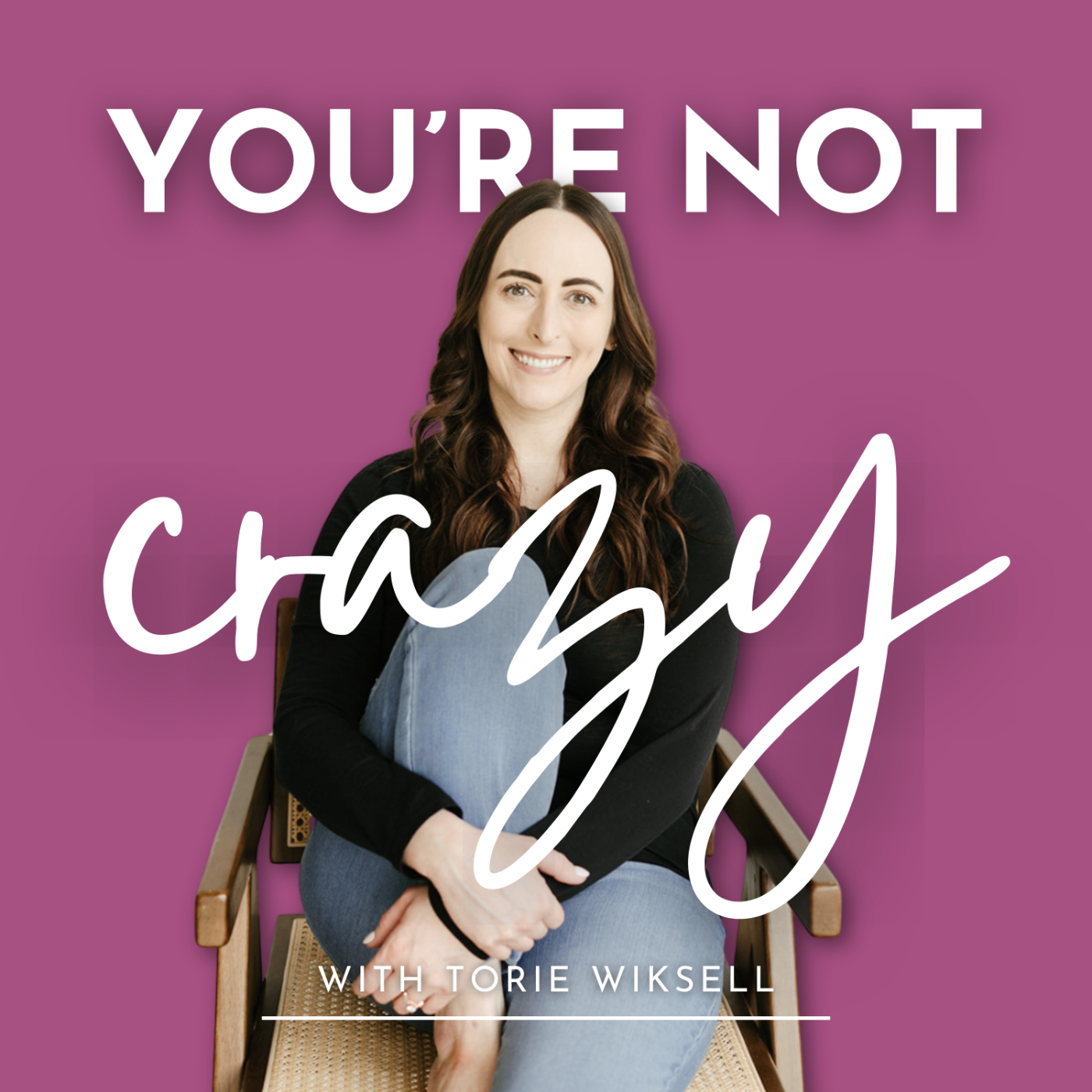Torie Wiksell: 4:35
Welcome to You're Not Crazy, a podcast for the adult children of parents with borderline and narcissistic personality disorders. I'm your host, Torie Wiksell, a therapist and coach with over a decade of experience in the mental health field. Now, let's jump in. Today we're going to talk about why I am so skeptical when parents claim to have no clue why their child went no contact with them and say that they're completely blindsided by this. So, I recently read this article in the New York Times by author and journalist Ellen Barry: Is Cutting Off Your Family Good Therapy? You may or may not have read it too. I know it's kind of been talked about on social media. I wrote an article about it for Medium, and I've got a lot of thoughts here. But one thing that was addressed in this article was really interviewing parents—including some parents who are actually therapists themselves—who claim that their adult child went no contact with them and they were completely blindsided. They feel that in some situations, their child's therapist encouraged them to do so, and they just had very strong opinions.
Torie Wiksell: 5:57
And one thing that I know has become more and more popular on social media is that people are able to connect with other people who have really similar frames of thinking around the situation that they're currently experiencing in their life. For example, you found my podcast probably because you yourself are an adult child of a parent with BPD or narcissistic personality disorder, and so am I, and I'm a therapist and coach who works with people like us, and so we can connect with people that are similar to us. Where this becomes a problem is when people's frame of reference and their view of the situation they're in is not an incredibly healthy one, and then they connect with other people with similar views as theirs, where they're not really getting alternative viewpoints introduced, and they just start to echo one another and really reinforce this belief system that they have. And so, I think that this is actually happening more often than we may realize, with parents whose children go no contact and children... I'm always talking about adults here. And so what I found very interesting and not surprising is that these parents were, you know, insisting that they were essentially these great, wonderful parents, and they have no idea why their adult child would go no contact, and this is something horrible that's happening to them, as in the parent, right? And I think that this just supports my skepticism when parents tell me that they're completely caught off guard by their child going no contact because it's not about you. It's never been about you as a parent. It's always about your child, 100% of the time.
Torie Wiksell: 7:56
And if you're a parent of a child that's gone no contact with you, listening to this podcast and thinking, "Well, you just have no idea. You're not a parent of a child that's gone no contact with you," listening to this podcast and thinking, "Well, you just have no idea. You're not a parent yourself." I actually am. I'm a parent myself, and while I am a parent of a younger child, my entire world is reflective of what she needs from me, and it will continue to be that way until we're old and gray and we've reached the end of my life. And so, yes, I do very much understand what it's like to be a parent, and I understand very much how hard it is and how demanding it is and how thankless it can be at times, and guess what? That's what we sign up for as parents. It can be at times, and guess what? That's what we sign up for as parents. And so, when you don't have the ability to take accountability for things that you've done wrong, when you don't have the ability to say, "Oh my gosh, what might I have missed? What might I have done to contribute to my child feeling that they no longer want a relationship with me?" When that's not even part of the conversation, then I think, right, there is something reflective of what is going on with you that would make your child come to the conclusion that they need to take some distance.
Torie Wiksell: 9:14
Because in my experience, both professional and personal, and anecdotal experience, what actually happens when adults go no contact with their parent is they try very hard to maintain, to create some sort of healthy, or at least not abusive, dynamic between themselves and their parent. And they try, and they try, and they typically go to therapy and they try to work on themselves, and they try to build healthy boundary-setting skills, and they try to implement healthy boundaries and communicate their needs. And this falls on deaf ears or the parent just blatantly refuses to engage with them in a new way at all. And so, at a certain point, they just get so exhausted, and they realize the negative toll that all of this is having on them in their personal lives, how it's impacting their capacity to engage with the world outside, their relationship with their parent in a meaningful way, in a way that they want to, and they just recognize that they've come to this point where they're not benefiting much, if any, from this relationship anymore, and so that's the point at which they go no contact. And so, for me, it's really, really hard to consider a situation in which an adult child, who is an emotionally stable, emotionally healthy, functional person, would just wake up one day and say, "I don't want to have a relationship with my parent, who has always been loving and supportive and kind and receptive to feedback and encouraging to me." I've never seen it. I don't believe it happens.
Torie Wiksell: 11:10
And so, yeah, I find it very hard to believe these parents who are out there screaming from the rooftops that it's other people's fault, they didn't see this coming, and that the evil therapist must have convinced their adult child to break off contact with them, especially the therapist in this article that we're seeing that... I mean, I think, if that doesn't scream that you need to do your own work on your own personal therapy, I don't know what does, but anyways, I don't really believe it. I don't buy it. I wish that, you know, there was more pushback, and I wish that people in their personal worlds would offer a counterpoint of view to them so maybe they would self-reflect.
Torie Wiksell: 11:59
But, to be honest, this is very common when it comes to dysfunctional family relationships. That's why they call us cycle breakers, because we're the people who woke up and said, "This is effed up, this is not how I want to live my life, this is toxic, this is dysfunctional. These patterns going on within my family are not healthy, they're not okay, and I certainly don't want to repeat them. I want to do whatever I can to break this cycle and be a happy and healthy person." And so, yeah, next time, you know, you worry about your parent chatting with others, maybe their therapist and saying they just completely were a victim in this situation, just know that I get it and yeah. Thanks so much for listening to this episode of You're Not Crazy. If you want to learn more and connect with me, please follow me on Instagram at Torie Wiksell and check out my therapy and coaching websites, TorieWiksellTherapy.com and ConfidentBoundaries.com. See you next episode, thank you.







